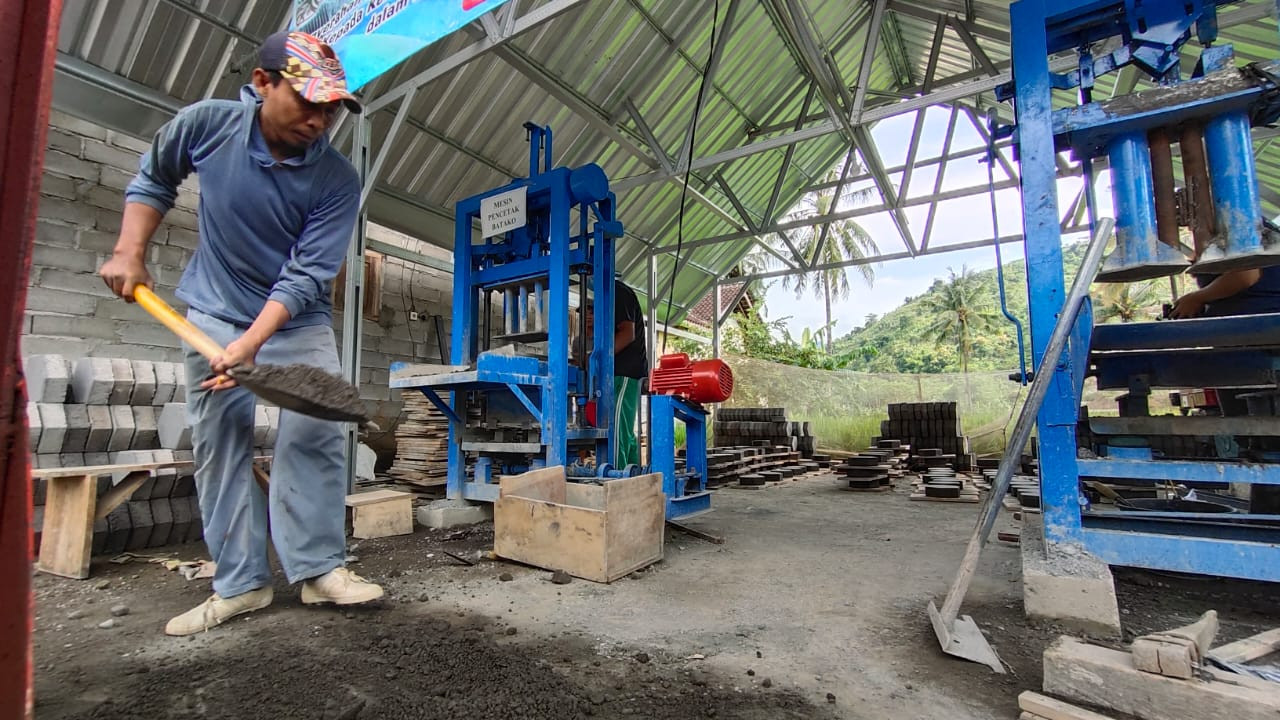Popular Reads
Top Results
Can't find what you're looking for?
View all search resultsPopular Reads
Top Results
Can't find what you're looking for?
View all search resultsUkraine crisis hits Indonesian cement, fertilizer industries
SIG, Pupuk Indonesia struggling to get raw materials.
Change text size
Gift Premium Articles
to Anyone
R
ussia's invasion of Ukraine has affected Indonesian cement and fertilizer producers with many firms in the two industries, which are among the bellwethers of the construction and agriculture sectors, facing difficulty securing certain raw materials.
State-owned cement producer PT Semen Indonesia Group (SIG) and state-owned fertilizer producer PT Pupuk Indonesia, the top companies in their respective industries, told lawmakers at a hearing on Tuesday that the industries were facing difficulty securing coal, kraft paper and a certain chemical used to make fertilizer due to the Ukraine war.
SIG CEO Donny Arsal said surging international coal prices meant coal miners preferred to export the commodity instead of selling it at domestic market obligation (DMO) prices. Thus, many cement producers were struggling to get hold of the fuel.
Indonesian benchmark coal prices (HBA) have surged to US$288.40 per ton in April after Western countries embargoed Russian coal. In comparison, the DMO policy pegs prices at $70 per ton. Most DMO coal goes to the electricity industry.
“The rest of the coal sold at DMO price [left after electricity demand] is up for grabs for cement, smelter and other players. If the supply is not enough, then some players might not get coal at DMO prices,” Donny told lawmakers of House Commission VII, which oversees industry and energy.
He urged the government to make a clear who-supplies-whom policy to ensure stability in the cement industry.
Read also: Indonesia mulls raising coal DMO to 30%
Indonesia currently has around 160 million tons of coal sold at DMO prices with state-owned electricity company PLN taking more than 76 percent of the total, leaving around 30 million tons for industries like cement and metal refining, among other industries.
In total, the cement industry needs 16 million tons, which is more than half of the leftover from PLN demand. PT SIG, which holds a 50 percent share of the domestic cement market, needed around 7.5 million tons.
Following the supply crunch, SIG acquired roughly 63 percent of its total coal needs at DMO prices, while the rest was left uncertain, as few miners were willing to sell at DMO prices. Company policy was to prioritize buying coal at DMO prices, instead of at market prices.
“If we cannot secure [the rest of the supply], it could affect our business. But we will not say that we can’t get suppliers. We will try first,” Donny said.
Aside from the coal supply shortage, the war in Ukraine has deprived SIG of kraft - a raw material required to produce cement bags. Most kraft used by SIG was sourced from Russia, which has stopped supplying the material since the war began.
Indonesia once produced kraft in Aceh province, but the producer has long closed its business. Since then, SIG has been sourcing the material from imports, which costs the company around Rp 960 billion (US$66.82 million) annually.
“The supply was stopped due to the war. Now we are switching to a woven material, which we are still trying to improve so it could match the imported ones,” Donny said.
Read also: Govt cuts fertilizer subsidies, rolls out wage subsidies
Fertilizer industries
PT Pupuk Indonesia production director Bob Indiarto said the company was having trouble securing enough diammonium phosphate (DAP) and potassium chloride (KCI), which are necessary to produce subsidized nitrogen, phosphorus and potassium (NPK) fertilizer.
The company sources most of its DAP from Russia, whereas most of its KCI was sourced from China, which has placed export restrictions on the chemical.
Bob said the firm had been lobbying the Russian Embassy in Indonesia to address the DAP supply. In response to China’s export ban, the company was trying to source KCI elsewhere, such as from Spain, with the help of Indonesian state-owned mining holding MIND ID.
“For now, we estimate the stock is safe until August, but we are thinking about beyond August,” Bob said on Tuesday.
The Indonesian government announced on April 5 that it would cut back on its subsidized fertilizer program to shield the state budget from rising commodity prices.
Coordinating Economic Affairs Minister Airlangga Hartarto said the government would reduce the types of subsidized fertilizer available for producers. The government will only provide subsidized NPK and urea. It will no longer provide subsidized ZA, SP-36 and organic fertilizers.
Airlangga said the government needed to cut back the fertilizer program as urea prices were nearing US$1,000 per ton and as supplies were disrupted because Indonesia imported several raw fertilizer ingredients from Ukraine. The government would prioritize distributing subsidized fertilizers to producers of priority commodities, including rice, corn, soy beans, shallots, chilies, cocoa and sugarcane smallholders.
“The President underlined the importance of getting fertilizer subsidies delivered to targeted beneficiaries. [We hope] rising fertilizer prices will not lead to a shortage of fertilizers,” he said.










